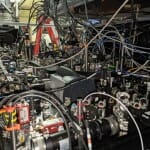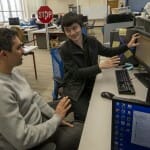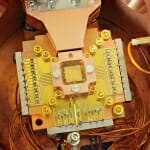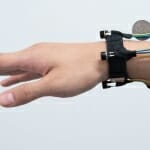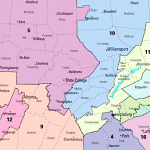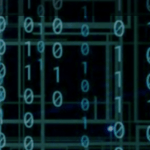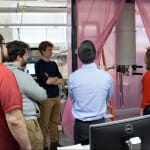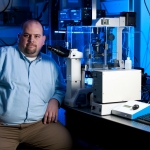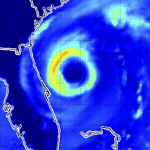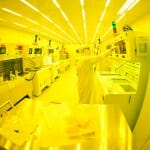Tag Computers
Study finds 63% of teens have healthy relationship with digital technology
Researchers in the UW School of Medicine and Public Health say family rules on the amount of screen time teens are allowed are less effective in fostering good digital practices than focusing on the content of what they are viewing.
UW–Madison, industry partners run quantum algorithm on neutral atom quantum computer for the first time
The achievement suggests quantum computers that outcompete traditional ones are on the horizon, with potential uses in logistics, drug discovery and computational modeling.
You’re muted — or are you? Videoconferencing apps may listen even when mic is off
Not only did researchers find that the apps gather audio data while "mute" is activated; they could identify activities picked up when microphones weren't believed to be on, such as eating, playing music, typing and cleaning.
Sociologist battles inequities in artificial intelligence
Alumna Alex Hanna is a research scientist on Google’s Ethical AI Team, which focuses on responsible artificial intelligence systems. “There’s a very strong chance that those data are exacerbating existing race, gender, and class inequalities,” she says.
3D-sensing wristband opens possibilities for sign language translation, virtual reality
The researchers dubbed their device FingerTrak. It can sense and translate into 3D the many positions of the human hand, including 20 finger joint positions.
UW–Madison VisPy data visualization project awarded Chan Zuckerberg Initiative grant
A programmer is working to make scientific data easier to picture, from creating images of spiral galaxies based on theoretical data to visualizing satellite imagery.
Math research produces better way to identify gerrymandering
UW mathematicians are analyzing how algorithms, not just maps, are used to gerrymander political districts. They hope to expose techniques that politicians might use to create biased districts, and use that knowledge to prevent it.
Researchers at UW–Madison lead data science coalition to aid with COVID-19
Early modeling results show that the speed of viral transmission has slowed since Wisconsin's first “Safer at Home” executive order, demonstrating that social distancing is necessary to stop the spread of the disease.
First cohort of students dives into new physics-quantum computing master’s degree
UW–Madison’s inaugural MS in Physics – Quantum Computing, which addresses a workforce need as the first program of its kind in the U.S., will prime students to enter this rapidly growing field.
Professor will make ‘workhorse’ microscope more powerful
Kevin Eliceiri says he has always believed that science is best done by building on the work of others and openly sharing what you have done.
Videos, music on tablets boost moods of dementia patients and caregivers
A pilot study analyzed by researchers at the University of Wisconsin–Madison School of Pharmacy finds that dementia patients given access to tablets loaded with apps for photos and music, and common apps such as YouTube, experience more positive moods.
Quantum science at UW–Madison joins exchange, invests in faculty and students
“By the investments we are making in quantum science and technology," says Steve Ackerman, "we are ... leading the way in concepts and technology that may revolutionize computing, communication, security and more.”
UW Women at 150: Computer scientist Thelma Estrin
Thelma Estrin was an early pioneer of the field of medical informatics — the now commonplace practice of applying computers to medical research and treatment. She also was something of a trailblazer for women hoping to pursue careers in the sciences.
New master’s in quantum computing offers training for a growing field
In a single calendar year, the program will catch students up on the fundamentals of quantum physics, cover the theory behind quantum computing, and teach students laboratory skills to construct the devices.
Next generation Large Hadron Collider relies on UW–Madison computing
The University of Wisconsin Center for High Throughput Computing will receive $2.2 million dollars to help develop software to support an upgrade in the Large Hadron Collider.
Could computers help close partisan divides?
Researchers are using artificial intelligence to develop a comprehensive picture of how people communicate about politics, and how those conversations are shaped by media, social networks and personal interactions.


